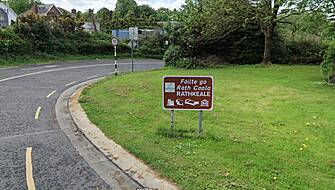A High Court judge has ruled that two children removed from another EU country and brought to Ireland by their mother must be returned to that jurisdiction.
In a judgment directing their return Ms Justice Mary Rose Gearty, rejected a claim that one of the children was at grave risk from self-harm if returned, and said that any decision to move the children to another country "can only be done with the consent of both parents".
The children were wrongfully abducted their home, despite childcare proceedings which are ongoing in their home country's family courts, the judge held.
The judge added that the "history of chronic conflict" between both parents is a major cause of the one of their children's distress."
"The parties in the action should consider this when it comes to parenting in the medium to long terms and determining the best interests of their children," she said.
Relationship breakdown
The children had lived with their parents, until the couple's relationship broke down, the court heard.
The children's father, who had been given joint custody of them, applied to the Irish courts for an order under the Hague Convention, the international agreement which governs alleged 'child abduction', for their return to their country of habitual residence.
He said that last year the children were taken to Ireland for a holiday, but was later informed by their mother that they wished to remain here.
The father did not consent to that.
The mother had opposed the application, on the grounds including that one of the children was at grave risk from self-harm if returned.
The court was also asked to take both children's views, who allegedly wanted to stay here, into account.
The parties, who all have family links with Ireland, cannot be identified for legal reasons.
In her judgment Ms Justice Gearty said both children have been the subject of family law proceedings in their home county following the break-down of their parents' relationship.
The judge said that there was no evidence before her that the specific issue concerning the child at risk was referred to when the matter was last before the courts in their home country.

The judge also said that in 2019 an application to relocate the children to Ireland was made before the country's courts, which was not granted.
However, in the most recent family law hearings no such application was made, and no challenge was made to the joint custody arrangements.
The judge said the views of the child at risk about being returned home amount to a strong objection.
That objection did not counterbalance the factors in favour of return, when all the relevant factors were taken into account, the judge said.







